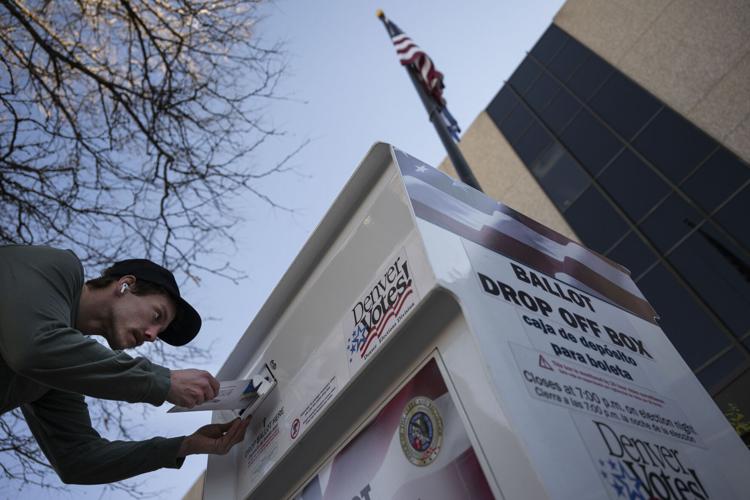This time next year, Denver will have a new sitting mayor. The field of candidates is already crowded — 21 people have filed paperwork announcing their intentions to run for the office.
In coming days, the Denver Gazette will publish a complete list of candidates.
Denver Mayor Michael B. Hancock is term limited after serving almost three terms, and 12 years in office. He was elected in 2011. A new mayor will be declared on or after the April 4 2023 election, depending on if there's a runoff.
The plethora of candidates gives a clue as to how simple it is to file for candidacy. The difficulty comes in raising money and support until April.
The process is spelled out in a document shared at denvergov.org.com by the Office of the Clerk and Recorder's Elections Division (DED). The nine-step process contains necessary links to paperwork and requirements a prospective candidate must meet to announce a candidacy bid.
Basic requirements: A candidate must be a resident of the City and County of Denver, for at least the two years prior to the election. For this upcoming election, that would be April 4, 2020. Candidates must retain their Denver residency during their term as mayor.
Additionally, a candidate must be at least 30 years old, a qualified elector in the City and County of Denver and must be willing to take the position as a full-time job.
Alton P. Dillard, the marketing and communications manager at Denver's Office of the Clerk and Recorder said candidates have to treat running for mayor with a "multi-pronged approach."
"The first thing they need to do is confirm they meet the criteria to run for the office," he said Tuesday. "The other part of the prong is that a person has to make a public pronouncement that you're running for office and raise or spend $500 towards that run."
All candidates must file the municipal candidate affidavit within 10 days of this declaration and spending. Additionally, they must familiarize themselves with Denver's rules about campaign finance.
After paperwork is filed, candidates may go about preparing for gathering petitions. This can be done using Denver's eSign tablets or the updated municipal candidate petition form. Petitions cannot be circulated until 91 days before the election. The last day a petition can be circulated is 55 days before the election, according to the rules.
After petitions are done, they must be filed with the clerk no later than 55 days before April 4 — that's Feb. 7. A candidate nomination form must also be submitted at that time. Additionally, a mayoral candidate must get no less than 300 signatures on their petition in order to be placed on the ballot.
But candidates should always get more, Dillard said.
"We always suggest people give themselves a little cushion, because they may approach someone who just thinks they're a registered voter, or they think they may live in Denver, and it may end up that they don't," he said. "So we always ask people to give themselves a little cushion and get more, because 300 of them have to be valid."
After that, the elections division takes over and determines the sufficiency of submitted petitions. If a petition is found to be insufficient, the elections division will contact the candidate.
A candidate may withdraw 48 days prior to the election by presenting the division with a candidate withdrawal form.
One of the last — but incredibly important to candidates — steps is election division officials' determination of the ballot order. The Elections Division randomly assigns ballot order for the general election, but if that election requires a runoff, ballot order is determined based on whomever gets in line first, according to Dillard.
The elections divisions advises all candidates to remain informed of election happenings. A candidate contact sheet is provided, and candidates are asked to keep their contact information current.
After that, the race is on and the candidates bid is in the hands of Denver voters.





